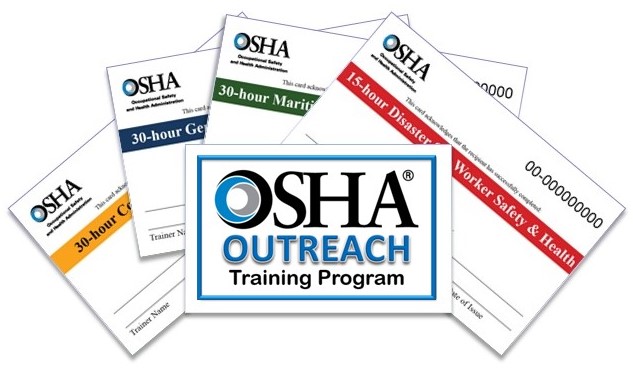The Facts About Obtaining an OSHA Card
Many job creators ask their workers to obtain an OSHA card. This often refers to the Occupational Safety and Health Administration's (OSHA) Outreach Training Program's 10-hour and 30-hour safety courses. Unfortunately, there has been an increase in fraudulent activity related to these courses over the past several years. Knowing the facts can help workers avoid fraudulent trainers and courses.
FACT: Only OSHA-authorized trainers may teach 10- and 30-hour safety courses and issue OSHA student course completion cards.

The 10-hour safety course covers general safety and health hazards for entry-level workers. The 30-hour safety course provides a greater variety of safety subjects and in-depth, industry-specific training and is intended for supervisors and workers with safety and health responsibility. While fraudulent actors may advertise OSHA 10-hour training, only OSHA-authorized trainers can issue course completion cards at the end of the training.
FACT: OSHA publishes a public list of authorized trainers to help workers find legitimate training and avoid fraud.
OSHA provides a list of authorized trainers to find instructors for the 10- and 30-hour safety courses. The list provides trainer names and contact information, and denotes which course each trainer is authorized to teach (i.e., construction, general industry, maritime, disaster site worker). Courses are also available in Spanish and online from the appropriate authorized trainer.
FACT: Taking the course does NOT guarantee employment.
While OSHA believes this training is an important first step towards workplace safety, beware of advertisements "guaranteeing" jobs after taking the course.
FACT: OSHA does not require completion of these courses, but may require other training for workers that encounter certain workplace hazards. Although some states, cities, and job creators have mandated Outreach Training Program courses as a prerequisite to employment, OSHA does not require the training. In other cases, jobs may include workplace hazards that require training to meet OSHA standards, such as training on common chemical hazards encountered in the workplace, or operator training for specific powered industrial trucks on the jobsite. Be sure to check your local requirements and consult the relevant OSHA regulations.
Keep these facts in mind when searching for courses and trainers to ensure proper safety training and avoid fraudulent courses. If you come across any fraudulent actors, please contact the Department of Labor's Office of Inspector General. For more information, visit the Outreach Training Program website.

